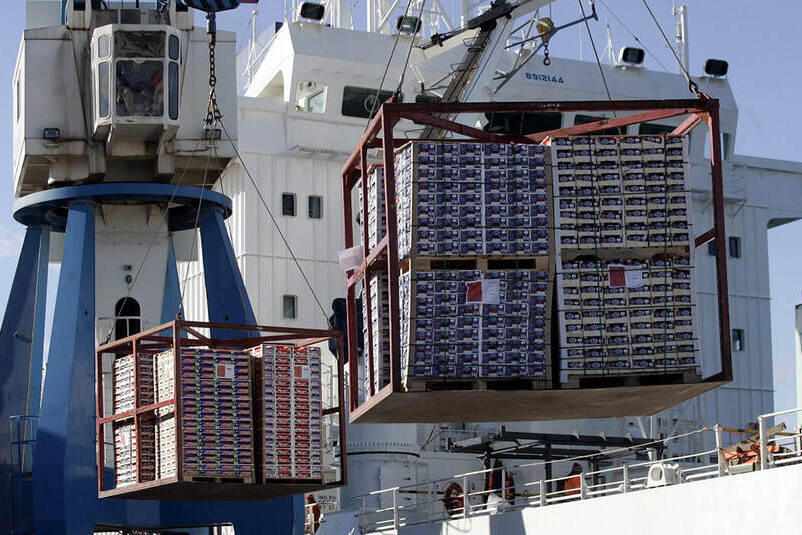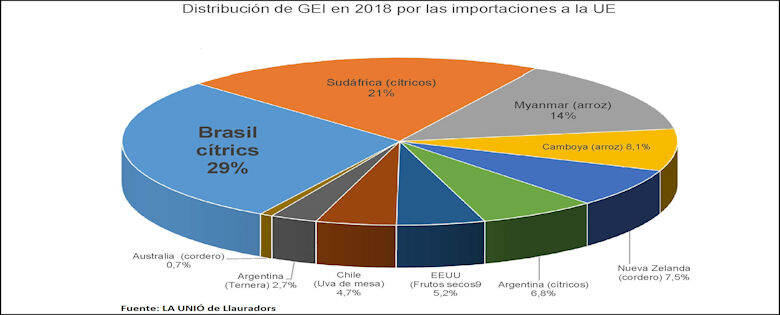Spain: EU imports from third countries emitted 345 million kilos of GHGs in 2018
This is indicated by a study being carried out by a Valencia farmers’ organization. Most of the polluting gasses are CO2, but also methane, nitrogen oxide and monoxide, sulphur and lead, among others.

“What is not said at the COP” is how an important digital media headlines this news. Last year imports made by the EU’s MSs from third countries generated more than 345 million kilos of GHG pollutants, according to a study by the Unión de Agricultores y Ganaderos, a farmers’ organization from Valencia Region.
Most of the emitted gases are CO2, but many other highly polluting and responsible for the greenhouse effect are also emitted.
The study sample has reviewed imports from Brazil (fresh citrus and juice), South Africa (fresh citrus), Myanmar and Cambodia (rice), New Zeeland (lamb), Argentina (fresh citrus and beef), US (nuts, mainly almonds), Chile (table grapes) and Australia (lamb).
Maritime transport is primarily responsible for these emissions. According to the first data from the study (Fig. 1), citrus juices from Brazil –because of its volume- accounted for 29% of GHG emissions in 2018, rice from Myanmar and Cambodia for 22% and citrus fruits from South Africa for 21%.

For the Valencia organization, “a commitment to the consumption of European food stuffs would undoubtedly reduce the problem of global warming”. In this sense, a recent study by the Universidad Abierta de Cataluña already indicated that a local food model would mean a 75% reduction of GHG emissions and a 52% decrease in energy consumption.
Source: agroinformacion.com